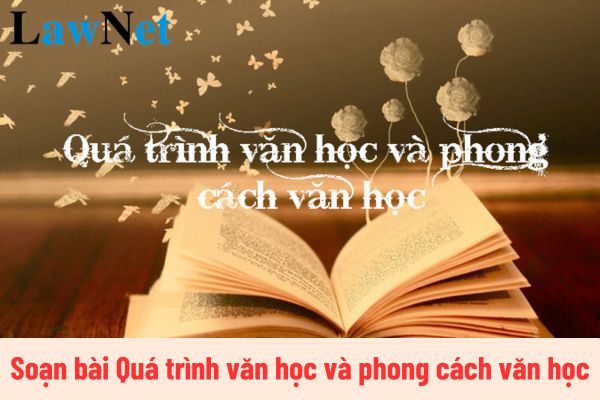Vietnam: What are the guidelines for preparing the lesson "Literary Process and Literary Style" for 12th-grade students? What are the academic topics in the 12th-grade Literature curriculum?
What are the guidelines for preparing the lesson "Literary Process and Literary Style" for 12th-grade students in Vietnam?
The literary process is an endless flow, encompassing the formation, development, existence, and transformation of literature through historical periods. In other words, it is the literary process reflecting the social life, thoughts, and emotions of people in different historical stages.
|
Guidelines for preparing the lesson "Literary Process and Literary Style" for 12th-grade students
|
*Note: The above guidelines for preparing the lesson "Literary Process and Literary Style" for 12th-grade students in Vietnam are only for reference./.

What are the guidelines for preparing the lesson "Literary Process and Literary Style" for 12th-grade students in Vietnam? What are the academic topics in the 12th-grade Literature curriculum? (Image from Internet)
What are the academic topics in the 12th-grade Literature curriculum in Vietnam?
Under Section V of the General Education Program for Literature issued with Circular 32/2018/TT-BGDDT, the academic topics in the 12th-grade Literature curriculum in Vietnam are as follows:
Topic 12.1. RESEARCH AND WRITE A REPORT ON A MODERN AND POST-MODERN LITERARY MATTER
- Understand the requirements and methods for researching a matter.
- Be able to write a research report.
- Understand and apply some knowledge from the topic to comprehend and write about modern and post-modern literature.
- Be able to present a modern, post-modern literary matter that has been examined.
Topic 12.2. UNDERSTAND A LITERARY WORK ADAPTED INTO AN ARTWORK
- Understand what a literary adaptation is.
- Learn how to explore, introduce, and present an artwork adapted from literature.
- State the idea and method of adapting a literary work.
Topic 12.3. UNDERSTAND THE CREATIVE STYLE OF A LITERARY SCHOOL: CLASSICAL, REALISTIC, OR ROMANTIC
- Recognize the creative style of a literary school (movement) through some basic characteristics.
- Understand the requirements and methods for exploring a literary school’s creative style.
- Be able to write an article introducing the creative style of a literary school.
- Apply the knowledge from the topic to explore some creative styles of other literary schools.
- Be able to present the creative style of a literary school.
What are the orientations in educational methods for the 12th-grade Literature curriculum in Vietnam?
Under Section 6 in the Appendix to the General Education Program in Literature issued with Circular 32/2018/TT-BGDDT, the orientations in educational methods for the 12th-grade Literature curriculum in Vietnam are as follows:
The Literature curriculum utilizes education methods oriented toward integrated and differentiated teaching; diversifying educational methods, means, and organizational forms; promoting active, proactive, and creative learning, and applying the knowledge and skills of students.
- Based on the program, teachers proactively and flexibly build and organize lessons according to the following orientations:
+ Implement intra-disciplinary integration requirements (both knowledge and skills), interdisciplinary integration, and integrate priority education content (cross-disciplinary); implement differentiated teaching according to student subjects at all levels and differentiation contributing to career orientation in high school education.
+ Train students in methods of reading, writing, speaking, and listening; practice, and experience in receiving and applying knowledge of the Vietnamese language and literature through learning activities in and out of the classroom; focus on using teaching means, overcoming the traditional reading and copying teaching style, developing thinking, training skillful use of means for students.
+ Enhance and promote student activeness and self-reliance; allocate ample time for students to study textbooks and learning materials, practice, conduct presentations, and discussions, and defend learning results to enable students to read, write, speak, and listen according to varying demands and levels; assess and evaluate student task fulfillment in their learning tasks.

